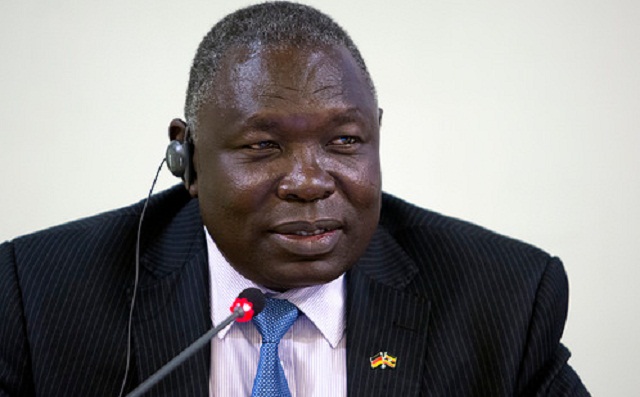
But the government also appears to be pursuing an aggressive marketing campaign. Ssempijja, for example, had earlier noted that the government is now negotiating with members of the Grain Council of Uganda to invest in buying the maize from the farmers.
“We now have a lot of maize and we are negotiating with people who can store the maize in clean and safe silos but also with those who can buy it from us; especially the World Food Programme and our neighbours.”
“We don’t support everybody to go inside the villages to buy this maize because they just buy anything, including poor quality maize,” he said, “When you buy from the Grain Council, you buy what is dry, clean and, already weighed maize.”
“Big buyers cannot buy our maize because they say Uganda’s maize is of poor quality and infested with aflatoxins because we have not standardized our systems,” he said, “Unless we standardize we are not going to attract these bigger markets, we will continue getting the smaller buyers.”
Chris Kaijuka, the Chairperson of the Grain Council of Uganda told The Independent on Feb.02 that, for the last four years, the council’s members have invested in the development of silos, warehouses, cleaners, driers, and graders.
“At least the country has a sizeable capacity of about 750,000 metric tonnes available with close to 250,000 metric tonnes having been developed in the last four years,” he said.
Hard lessons learnt
It appears the government learnt some important lessons from the 2017 hunger and is already taking precautionary measures as the farmers get back into their gardens to prepare for this year’s first season which has short rains. Uganda’s first rain season starts in March and ends in May.
In his pre-season message to farmers, minister Ssempijja urged farmers to plant quick maturing or drought tolerant seed varieties. In the districts which were devastated by the Fall Army Worm, farmers should practice crop rotation for maize with other crops to break the pest / disease cycles.
“Repeated planting of similar crops in the same fields leads to pest and disease population build up and outbreaks due to constant availability of food for pests and diseases. So rotation of crops is a good agricultural practice that should be carried out by all farmers,” he said.
The minister also asked extension workers to guide households on growing nutritious foods such as leafy vegetables, pumpkins, yams and orange flesh sweet potatoes, and fruits (oranges and other citrus).
He said communities in drought prone areas should de-silt dams and harvest enough rain water while those in flood-prone areas should open canals before rains begin to avoid flooding.
“I am happy that people have really responded to this practice,” he said, “When you go to the countryside, you will see people producing tomatoes and cabbages using water they are holding in tarpaulins.”
 The Independent Uganda: You get the Truth we Pay the Price
The Independent Uganda: You get the Truth we Pay the Price



